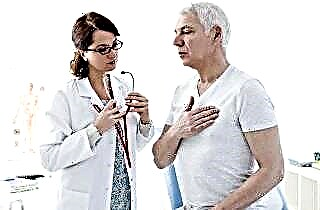When a cough appears during conversation, the reasons can be very different, ranging from dry mucous membranes to malignant tumors in the airways. In some cases, the violation does not require any therapy; it can be eliminated by ensuring normal humidity and air temperature. Long-term complex therapy is sometimes necessary.
Types of coughs and their features
Coughing can occur during conversation in different cases. To understand the nature of the disorder in the body, you need to find out what type of spasm disturbs the patient. By the nature of mucus, its presence or absence, the frequency of attacks and their duration, one can make an assumption about the disease that provoked the symptom. Let's consider them in more detail.
| Type of cough | Peculiarities | Violations |
| Dry | It manifests itself when the mucous membranes of the respiratory tract are inflamed, is paroxysmal, does not bring relief to the patient. | Acute respiratory infections, inflammation of the larynx, nasopharynx and trachea, allergies, foreign bodies in the respiratory tract, psychological discomfort, natural reaction to inhalation of cold air. |
| Wet | It appears most often due to infection of the lower respiratory tract, accompanied by the release of various types of sputum. | Bronchitis, acute respiratory infections and acute respiratory viral infections, pneumonia, tuberculosis. |
| Morning | It has a paroxysmal character, is formed from inflammation of the lower respiratory tract and stagnation of sputum, fluid accumulates in the bronchi during the night. | Disturbing for tuberculosis, bronchiectal patients and heavy smokers. |
| Evening | Most often caused by an infection of the lower respiratory tract, it disturbs the patient all day, but in the evening the cough worsens. | Bronchitis, pneumonia. |
| Night | It manifests itself when the tone of the vagus nerve increases, it also occurs when sputum flows into the pharynx. | Bronchial asthma, chronic bronchitis, postural drainage. |
| Barking | It is observed against the background of inflammation of dry mucous membranes and edema of the vocal cords, accompanied by a hoarse voice. | Whooping cough, false and true croup, acute laryngitis, neoplasms in the respiratory tract, hysteria (most often in children). |
| Bitonal | A sonorous high-pitched sound accompanies this type of spasm, it arises from the narrowing and squeezing of one of the bronchi, which leads to a change in the air flow rate. | Tumorous bronchoadenitis. |
| Cutting | It occurs in severe advanced diseases, if the patient is exhausted, the cough may be silent. | Pleurisy, tracheobronchitis, pneumonia, paralysis, destruction of the vocal cords. |
| Coughing | A deaf and mild spasm appears due to a slight but constant irritation of the cough receptors. | Chronic pharyngitis, stagnation of blood in the small circle of circulation, some forms of tuberculosis, chronic bronchitis, aggravated by pulmonary emphysema. |
| Physiological | A short-term reflex spasm occurs to free the airways from mucus and foreign bodies. | No pathological changes were observed. |
What causes a spasm when speaking
 If the cough starts to get worse when talking, it may be associated with some medical conditions. However, there are situations when a spasm appears without any disturbances, it is provoked by unfavorable conditions. Let's get acquainted with the reasons that can cause an unpleasant symptom.
If the cough starts to get worse when talking, it may be associated with some medical conditions. However, there are situations when a spasm appears without any disturbances, it is provoked by unfavorable conditions. Let's get acquainted with the reasons that can cause an unpleasant symptom.
- Post-infectious state. The cough may not go away from several weeks to two months even after the patient has disappeared from all symptoms of the infection. This condition causes a disruption in the functioning of the respiratory epithelium. Also, during and after illness, there may be an increased sensitivity of cough receptors. To alleviate the condition, physiological procedures are used.
- Infectious ENT diseases. This type of cough provokes a runny nose. The flow of mucus down the pharynx into the throat leads to spasm, as the phlegm irritates the receptors. Violation occurs not only in conversation. Its special strengthening occurs in the evening and at night, when a person takes a horizontal position.
- Whooping cough. This is a serious infectious disease, in our time it is rare, mainly affects children. Initially, the patient does not have any alarming symptoms, he feels normal, does not lose appetite, and his body temperature is not elevated. However, later the cough intensifies, it becomes paroxysmal, causes nausea and vomiting, sometimes even respiratory arrest. Along with the spasm, fever, general weakness appears.
- Nicotine use. "Smoker's cough" is a fairly common phenomenon, most often it occurs in people over 35 who smoke 20 or more cigarettes a day. It manifests itself against the background of dysfunction of the mucous membranes. The attacks occur in the morning, and the cough continues throughout the day.
- Asthma. The disease manifests itself only with a cough, therefore it is difficult to diagnose it. The spasm can change its character, be accompanied by phlegm or be dry, disturb the patient with severe attacks or periodic coughing. The disease can only be determined using a test for bronchial hyperactivity. Respiratory tract irritation occurs mainly after exposure to dust, inhalation of cold air, or strenuous physical activity.
- Allergic reactions. In case of personal intolerance to any substances, the patient has a cough that intensifies during periods. Allergies can be seasonal and occur during the flowering period. Also, an unpleasant symptom can be provoked by the wool and feathers of pets, household chemicals, cosmetics, perfumes, food, etc. It is eliminated by using antihistamines and restricting the patient from contact with allergens.
 Cardiovascular diseases. With heart failure, the heart muscle is weak. The organ cannot fully pump blood, which is why it stagnates in the respiratory system. This leads to swelling of the mucous membranes and irritation of their receptors. On the background of the violation, a dry spasmodic cough manifests itself, it is accompanied by a rapid heartbeat and shortness of breath.
Cardiovascular diseases. With heart failure, the heart muscle is weak. The organ cannot fully pump blood, which is why it stagnates in the respiratory system. This leads to swelling of the mucous membranes and irritation of their receptors. On the background of the violation, a dry spasmodic cough manifests itself, it is accompanied by a rapid heartbeat and shortness of breath.- Gastroesophageal reflux. The disease develops due to insufficient tone of gastric pulp. Food, entering the stomach, cannot stay there, it is again thrown into the esophagus. The acidity of these masses is high enough that it irritates the mucous membranes of the larynx and causes a cough. The spasm is worse when talking or laughing, while eating, and a few minutes after eating.
- Side effects of drugs. Coughing while talking can be observed while taking medications for hypertension and heart failure. The symptom is a side effect and disappears immediately after the patient stops using drugs of the ACE inhibitor class.
- Sulfuric plugs in the ear. Cough receptors are located in the ears, because diseases of this organ also cause spasm. Seizures can occur due to the presence of ear plugs. It disappears after the removal of sulfur masses from the ear canal.
- Neoplasms. Oncological diseases are often accompanied by a cough. Initially, it is mild and is accompanied by the release of clear sputum. As the neoplasm develops, the spasm intensifies, becomes obsessive and prolonged, does not bring relief, sometimes blood clots are observed in the sputum.
During a conversation, a cough may appear if a person is nervous, worried. This can be compared to increased sweating in stressful situations.To eliminate the problem, you need to change the patient's situation, in some cases the help of a psychotherapist is needed.
How to avoid cramping
If you are susceptible to respiratory infections, it is best to prevent them from occurring. To do this, you need to protect yourself as much as possible from freezing - always dress for the season and do not spend a lot of time in the cold.
 You should also follow these rules:
You should also follow these rules:
- humidify the air in the room with household humidifiers;
- do not stay in hot rooms for a long time;
- walk often in the fresh air;
- avoid large crowds during epidemics;
- pay attention to moisturizing the mucous membranes, gargle with medicinal decoctions and infusions;
- take medicinal herbs for prevention, do steam inhalation.
In conclusion
A cough can appear when talking for a variety of reasons. It is a normal physiological reflex that helps our airways clear foreign bodies.
However, if the spasm becomes strong and intrusive, brings discomfort and manifests itself too often, you should consult a doctor. Only a hospital can determine the disease that caused the symptom and prescribe an effective treatment.

 Cardiovascular diseases. With heart failure, the heart muscle is weak. The organ cannot fully pump blood, which is why it stagnates in the respiratory system. This leads to swelling of the mucous membranes and irritation of their receptors. On the background of the violation, a dry spasmodic cough manifests itself, it is accompanied by a rapid heartbeat and shortness of breath.
Cardiovascular diseases. With heart failure, the heart muscle is weak. The organ cannot fully pump blood, which is why it stagnates in the respiratory system. This leads to swelling of the mucous membranes and irritation of their receptors. On the background of the violation, a dry spasmodic cough manifests itself, it is accompanied by a rapid heartbeat and shortness of breath.

